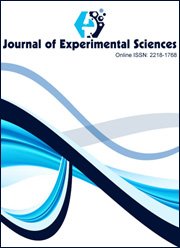Effect of Taurine and Glutathione on Mercury Toxicity in Liver Tissue of Rats
Abstract
The present investigation examined the ability of taurine and glutathione as an antioxidant to protect against mercury induced oxidative stress and hepatotoxicity. Mercury hepatotoxicity was induced by oral administration of mercury at a dose of 2 mg/kg body weight daily for 30 days. Hepatotoxicity was assessed by reduced serum total protein level and increased serum levels alanine aminotransferase (ALT), and aspartate aminotransaminase (AST) and alkaline phosphatase (ALP) and total protein. Mercury treatment increased lipid peroxidation (LPO) measured as thiobarbituric acid reactive substances (TBARS) concentration and decreased reduced glutathione (GSH) content in the rat liver. Again taurine and glutathione is administrated for 15 days. During this period, taurine improved liver functions, as indicated by decline of serum transaminases and ALP levels and elevation of serum total protein. Moreover, taurine significantly reduced AST, ALT, ALP and hepatic TBARS and increased GSH content and total protein in the hepatic tissue. These results indicate that taurine has a protective action against mercury induced hepatic damage in rats than glutathione.




 .
.